by Justin Mckibben | Sep 6, 2018 | Drug Abuse, Fentanyl, Fentanyl, Marijuana, Medical Marijuana, Synthetic Drugs
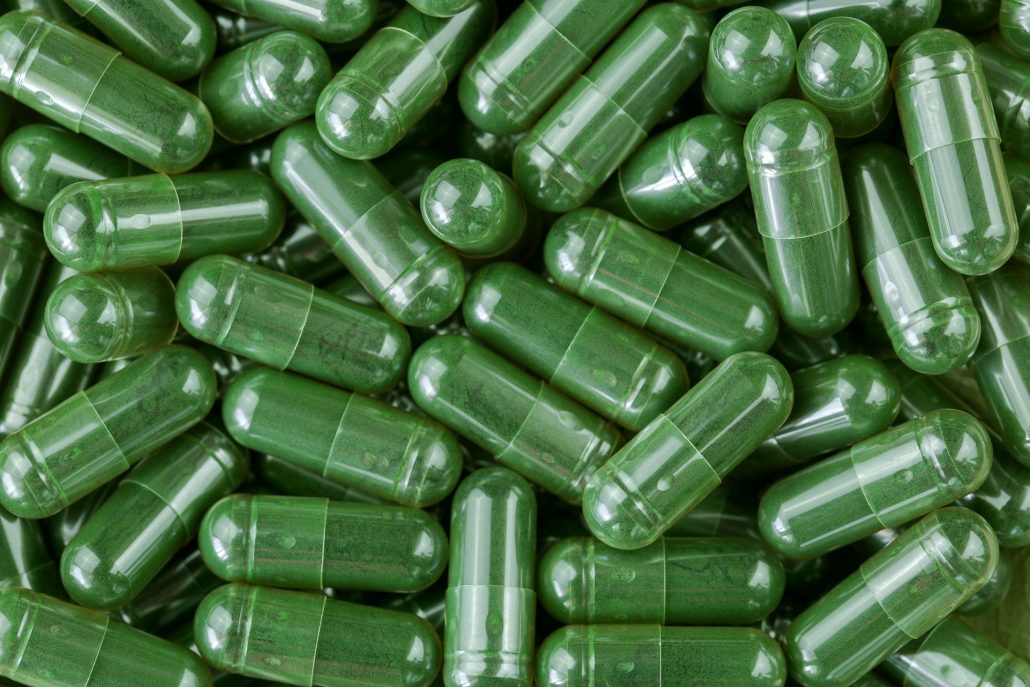
Over a year ago, it was uncovered that a Big Pharma entity spent over $500,000 to oppose legalizing medical marijuana. This is just one example of how the pharmaceutical industry working over years to influence marijuana policy in America. What was so interesting about this company’s efforts is that their own product was a sublingual fentanyl spray.
That’s the same synthetic opioid that became a major factor in the ongoing opioid crisis in America as it was integrated into the illegal drug market.
Marijuana advocates see the move from drug makers to oppose legalization as an attempt to prevent competition. Studies show cannabis can be an effective substitute for pain treatment. Many states with medical marijuana laws acknowledge it as a means to help treat chronic pain patients.
So it became even more telling when it was revealed that the same fentanyl maker undermining medical marijuana was also developing their own synthetic THC.
Insys Therapeutics VS Cannabis
This isn’t the only time we have written about the shady dealings of Insys Therapeutics. Some may recall back in 2017 when the former CEO and founding father of the company had criminal charges brought against him, along with other company executives, for racketeering and corrupt marketing schemes.
For years, Insys has been trying to sway marijuana policy decisions. In 2011, the Big Pharma racket wrote to the DEA expressing opposition to loosening restrictions on naturally derived THC. In the letter Insys claims “the abuse potential in terms of the need to grow and cultivate substantial crops of marijuana in the United States.”
But later in 2016 the company petitioned the DEA to loosen restrictions on synthetic versions of CBD, which is another key component of the cannabis plant. Why? Because they were developing a CBD-based drug to treat pediatric epilepsy. At the time, Insys Therapeutics made a statement claiming their opposition to the marijuana legalization proposition was because, “it fails to protect the safety of Arizona’s citizens, and particularly its children.” However, the company did insist that is believed in the benefits of cannabinoids.
Now, the company accused of aggressively pushing an incredibly potent and potentially lethal opioid drug onto patients who did not need it is now working on another new racket- Syndros.
Syndros: Synthetic THC
As a chief financial backer of the opposition to medical marijuana in Arizona, Insys Therapeutics has worked hard to give itself a monopoly on the market.
Syndros is a synthetic version of the THC compound found in the cannabis plant. This is the main psychoactive component of the substance and is behind a lot of the controversy around marijuana legalization. However, Syndros was approved by the FDA to treat cancer and AIDS patients for symptoms including:
- Nausea
- Vomiting
- Weight loss
This drug is very similar to Marinol, another synthetic THC product that was already approved by the FDA to treat anorexia in cancer and AIDS patients.
Syndros and its generic variations are considered a Schedule II of the Controlled Substances Act. This acknowledges it for medical benefits, but indicates a “high potential for abuse.” So it is on the same level as prescription painkillers, morphine, and cocaine.
Meanwhile, marijuana is still a Schedule I drug, meaning the FDA still considers it more dangerous than morphine, Oxycontin and now synthetic THC.
Dronabinol Debate
Dronabinol is a synthetic THC nasal spray that was quietly granted a Schedule II classification about a year ago. The FDA allows it to be prescribed, sold and federally regulated. This is another product from Insys Therapeutics capitalizing on the components of cannabis while the company fought to smother any competition.
Ironically, in 2007 the company had admitted in a disclosure statement to the Securities and Exchange Commission (SEC) that if cannabis or synthetic cannabinoids were legal “the market for dronabinol product sales would likely be significantly reduced and our ability to generate revenue and our business prospects would be materially adversely affected.”
So in short- they adamantly opposed medical cannabis efforts for years in order to limit competition. Meanwhile, they were developing their own drugs derived from cannabis. But it was not enough for the company to oppose cannabis legalization efforts. Insys also worked to disrupt other Big Pharma companies from trying to create generic versions of its drug.
Shutting Out Competition
Now, according to publicly available documents, Insys has tried to extend its monopoly over its oral dronabinol product. In October 2017, Insys Therapeutics requested that the FDA decline applications from competitors seeking to produce generic versions of Syndros. They’ve already sued two such drug companies:
- Par Pharmaceuticals
- Alkem Laboratories
Each had submitted Abbreviated New Drug Applications (ANDA). And ANDA is the first step in the process of gaining approval for generic versions of existing drugs. The request from Insys consisted of two parts:
- It asked the FDA to decline to “receive or approve” any ANDA applications that didn’t establish “in vivo bioequivalence” to its drug.
- Asked that ANDA applications for its drug “include fed and fasted state bioequivalence studies.”
Essentially, Insys was claiming that Dronabinol was too complex to be replicated by generic competitors.
However, the FDA eventually denied the company’s petition.
Robin Feldman is a professor of law and director of the Institute for Innovation Law at UC Hastings College of the Law in San Francisco. She literally wrote the book on all the ways mainstream pharmaceutical companies try to subvert generic competition. When discussing the language used in Insys petition to the FDA, she states:
“Companies pile these exclusivities on one after another to keep generic competitors off the market as long as possible. So the reason I laughed is what you are seeing is a multipronged effort by the brand company to stave off generic entry as long as possible.”
Insys has been able to enjoy some time cornering the market on synthetic THC products. But apparently, it is very likely that more companies will be able to get in on the racket pretty soon.
The Other Synthetic Marijuana
Then there is the other synthetic marijuana sold on the streets, which is very different and extremely dangerous.
Meanwhile, we have seen countless stories in recent years of the synthetic THC products made on the streets for recreational use and how these chemical compounds have resulted in outbreaks of overdoses. Infamous brands like Spice and K2 are designed to mimic the properties of natural marijuana. However, these synthetic cannabinoids can cause a range of adverse side effects, including:
- Seizures
- Psychosis
- Cardiac arrest
These are the more dangerous synthetics made in unregulated labs with chemical cocktails that are unpredictable and frequently toxic. Thousands of people have been hospitalized over the years due to the synthetic THC on the street. There are even dozens of fatalities attributed to illicit synthetic THC products.
Again, these are two different variations of synthetic THC. Synthetics like Spice or K2 are not quite the same thing as medications produced by companies like Insys. However, it should at least give some pause to consider that they are being created with the same intention- to artificially manufacture the effects of cannabis.
Drug Makers Want Marijuana Monopoly
Officials all over America are calling out Big Pharma companies for pushing to stop cannabis legalization efforts. Some say many of these drug companies are just trying to sell more drugs that addict patients. Essentially, the argument is that pharmaceutical companies are actively making a profit from drugs containing marijuana constituents while lobbying to prevent medicinal cannabis growth and development.
So do companies like Insys have the best interest of the patient in mind? Can a company accused of questionable tactics and supposedly illegal kickbacks be trusted with a monopoly on synthetic THC? Or are they just want a monopoly on marijuana-derived substances?
And if opioid makers get to dominate the market on synthetic THC products, will they be willing to put more people at risk of drug abuse and addiction in order to maintain their dominance?
Whether it’s natural cannabis, illicit synthetic marijuana, or medical synthetic THC, the risk for substance abuse should be taken seriously. Marijuana use disorder is a real issue that affects a lot of people across the country every day. If medical marijuana products are going to continue to evolve, our treatment of marijuana use disorder has to evolve with it. Innovative and holistic treatment options can make all the difference.
Marijuana use disorder is a very real issue that people struggle with all over America. If you or someone you love is struggling with a substance use disorder, such as chemical dependency or addiction, please call toll-free now to speak with a specialist today. We want to help.
CALL NOW 1-888-922-5398
by Justin Mckibben | Mar 6, 2018 | Drug Dealers, Drug Policy, Drug Trafficking, Law Enforcement, News, Stigma, Violence, War on Drugs

One of the consistent topics in politics now is how the current administration plans to tackle issues concerning drug policy. There’s plenty of recent news, such as the Attorney General announcing a plan for the Justice Department to support states suing Big Pharma opioid makers, while also claiming that marijuana is partly responsible for the opioid crisis. Reports have indicated China is willing to work with the US to fight fentanyl trafficking, but critics are still worried about the massive cuts President Trump proposed for the Office of National Drug Control Policy.
But that isn’t the only proposal made by President Trump that has inspired debates about drug policy.
This past Thursday, while speaking at the White House event on opioid issues, many believe that a few of Trump’s comments endorse the idea of executing people who sell illegal drugs. Shocking as it may seem to some people, the concept isn’t all that new. In fact, we see people all the time in the comment section of many articles on opioids who seem to think this is an acceptable idea.
We have asked the question before if drug dealing should be considered homicide, with mixed responses. However, now it seems we should be asking- is drug dealing punishable by death?
President Trump Admiring the Philippines
If we take a look back, President Trump has supported this strategy before. Just last year the leaked transcript of a phone call with President Rodrigo Duterte of the Philippines quoted Trump praising the nation’s bloody and brutal War on Drugs. In recent years, thousands of extrajudicial killings have taken place in a country fully immersed in a violent vendetta against drugs. The president was quoted saying:
“I just wanted to congratulate you because I am hearing of the unbelievable job on the drug problem. Many countries have the problem, we have a problem, but what a great job you are doing and I just wanted to call and tell you that.”
However, not everyone shares the president’s admiration. An inquiry by the International Criminal Court is actually investigating the killings of the Philippines drug war. Not to mention, others would argue that the brutal crackdowns in the Philippines haven’t exactly worked out either. In December, the head of the country’s drug enforcement agency publicly stated that they have been unable to stop dealing at the street level.
President Trump on Drug Dealers
This isn’t the only reported instance of the president supporting this extreme tactic. Just days before his Thursday remarks there was a story that Trump had privately told a number of people, including leaders in Congress, that he supports executing drug dealers.
So what did President Trump say at the White House Thursday? In general, he thinks sellers of illegal drugs don’t get punished severely enough in the US, stating:
“We have pushers and we have drug dealers that kill hundreds and hundreds of people and most of them don’t even go to jail,”
“If you shoot one person, they give you life, they give you the death penalty. These people [who sell drugs] can kill 2,000, 3,000 people and nothing happens to them.”
Even back in January, President Trump made comments that some think was a precursor to this conversation. In another report, the president suggested he had an idea for a change in drug policy that might be too dramatic for the country.
“No matter what you do, this is something that keeps pouring in. And we’re going to find the answer. There is an answer. I think I actually know the answer, but I’m not sure the country’s ready for it yet. Does anybody know what I mean? I think so.”
There is not yet any indication the president has committed to go this far. And yet, he has repeatedly vowed to be “much tougher on drug dealers and pushers.”
President Trump also said that his administration will be rolling out policy over the next three weeks, promising it will be “very, very strong.” This administration is definitely consistent with its focus on stricter enforcement and tough-on-crime tactics for the drug problem. So is this recent stir surrounding the president’s comments well-founded? Or is the president’s support for dealing with drug dealers with the death penalty just an opinion of his that won’t go into any actual policy plans?
Should Drug Dealers be Executed?
Surely, we will see plenty of arguments in the comments here. There are bound to be some very strong opinions. Some people do believe that drug dealers are the cause of countless deaths and that they should face the harshest punishments possible.
One person might say ‘an eye for an eye… trade one lethal injection for another.’ But we still need to ask ourselves if this is actually effective.
Many would argue that a lot of street-level dealers are addicts themselves, who peddle their own prescription medications or other illegal substances out of desperation. They might still be people suffering from an illness that leads them to do things they might not otherwise do.
You might say- well, then we should only execute people who provide drugs that lead to a death. But there are plenty of cases where this strict of a penalty seems extremely cruel and unusual. And there are already instances where the individual providing drugs to someone who overdosed has been charged with manslaughter. Some were even charged with second-degree murder. For example, there was the case of Joshua Lore. Lore had gotten himself high on heroin and then prepared and administered a dose for his friend, 23-year-old Kody Woods. After Woods died from the overdose, Lore was charged with second-degree murder. The coroner ruled the death accidental. However, the law still allowed for him to be charged as if he had intentionally shot his friend down in the street.
Would anyone argue that maybe he should face the death penalty because maybe his friend paid him for the drugs? What if?
Criminal Charges for Overdoses
In 1986, Boston Celtics draft pick Len Bias’s death was deemed cocaine-relate. The federal government then implemented stiff penalties on drug dealers whose sales can be directly tied to overdoses. This includes a minimum of 20 years, and up to life in prison. But there is the still scrutiny to prove the allegations against dealers. Back in 2014, the U.S. Supreme Court ruled that a drug can’t just have contributed to death. It needs to actually be proven as the cause of death.
So where do we draw the line there? Because in some cases an individual may not die directly due to an overdose, but because the drug causes a reaction in the body with a pre-existing condition or counteracts other drugs it turns deadly. What if someone buys drugs from multiple dealers in one day, then dies? Does each dealer get put to death just in case?
Let us say we are only going to consider the death penalty with king-pins and large-scale traffickers. Kellyanne Conway, who is the head of the White House’s anti-drug effort, supposedly told Axios the proposal from President Trump is more nuanced and would only apply to “high-volume dealers who are killing thousands of people.” Fair enough. But how do we measure that exactly? Will it depend on the drug? Are we going to have someone with marijuana farms being executed next to fentanyl traffickers, even though the substance they sell is considered legal in several states?
It all becomes a much deeper conversation about where the mindset of our world is right now. These days it seems our society has continued to embrace the idea of choosing the lesser evil. And we can argue all day about whether or not people think this is ‘right’… but would it even work?
Lesser Evil
Sadly, even if President Trump were to make the necessary distinctions, there are still going to be people who think all drug dealers should face death. But is trying to fight drugs by making an example out of dealers a practical solution? If people say drug use is still a voluntary act, should selling drugs constitute the death penalty if drugs aren’t forced into the victim’s body? And if we say yes, many also want to know if the president will support holding Big Pharma executives who engaged in corruption and shady marketing to the same standard.
Sure, maybe killing some drug dealers might scare a few others, but it won’t scare them all. If a dealer is taken off the streets, odds are another will take their place. Experts are sometimes split on whether attacking addiction at the supply-side has not been an effective strategy. Some say it makes drugs harder to get and more expensive. However, others say the open market inspires more dealers to take advantage of scarcity with higher prices. Studies even suggest there is no hard evidence that harsher penalties or supply elimination reduces drug use.
The tragic truth is there are already people who think we shouldn’t even be doing so much to save the lives of addicts. They say those who overdose should be left to die.
Is that who we are now? We see the people in our communities in pain and we leave them to die?
President Trump seems to believe a less punitive approach won’t work. So do the people agree? Should we have more compassion or convictions? If we stopped trying to arrest and punish our way out of the opioid crisis, could we be making more lives better?
Should we really be relying on the lesser evil?
The pain of losing a loved one to addiction is undeniable, and the desire for justice is understandable and natural. Even though we see addiction as a disease, we have to know we take our lives into our own hands every time. Sadly, sometimes we don’t make it back. But if you do, take it as an opportunity to make a change. If you or someone you love is struggling with substance abuse or addiction, please call toll-free now.
CALL NOW 1-888-922-5398
by Justin Mckibben | Feb 1, 2018 | Drug Policy, Drug Trafficking, Fentanyl, Law Enforcement, News, Synthetic Drugs, War on Drugs
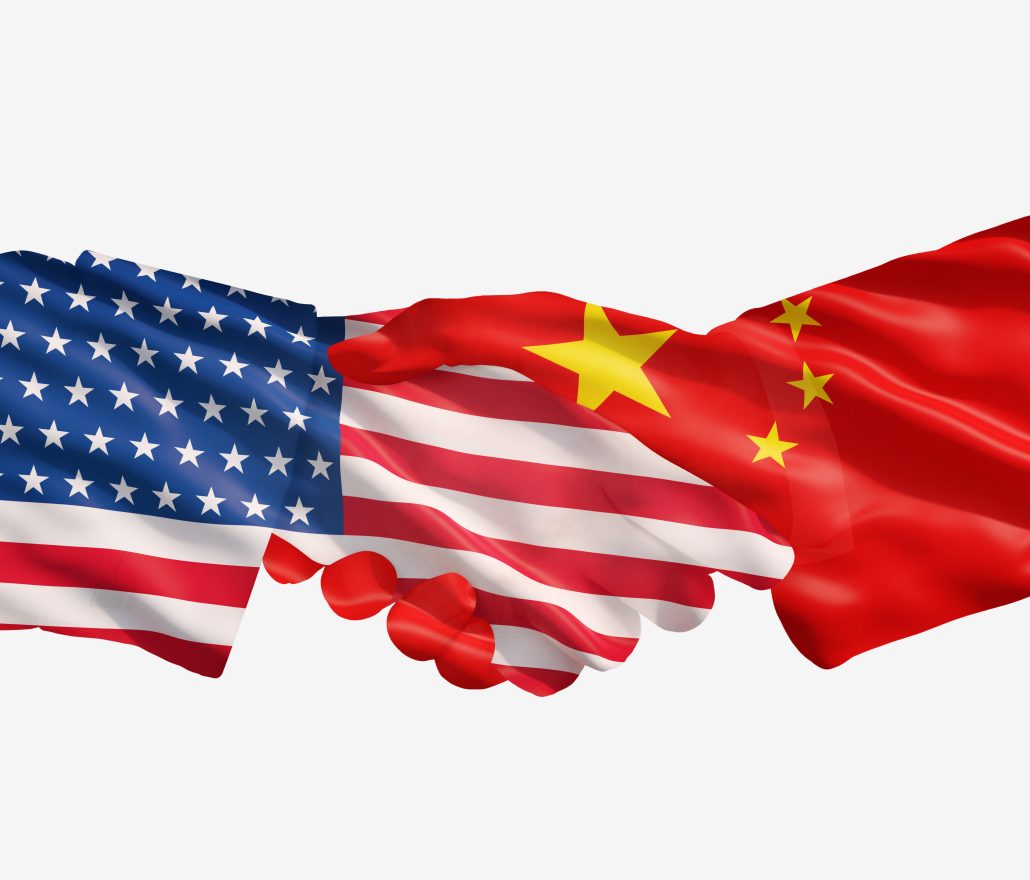
This month, Chinese and American officials are talking about new, combined efforts at combatting opioid trafficking. One spokesperson from China’s foreign ministry was quoted saying that the country is-
“…ready to work with the US to enhance our cooperation in this field.”
Back in August of 2017, we wrote about how China has been singled out by many in America as the main source of synthetic drugs like fentanyl getting into the country. Drug dealers online have been able to order shipments through websites hosted in China, making everyday package carriers into unknowing drug smugglers across the US. According to reports from the US Customs and Border Protection (CBP), seizures of fentanyl arriving by mail have increased drastically in the last few years:
- In 2011, 0.09 kilograms of fentanyl were seized by mail
- In 2016 is rose to 37 kilograms
Secretary of the Department of Health and Human Services, Tom Price, had said he firmly believed that China would be teaming up with the United States in order to end the spread of fentanyl trafficking.
Now it seems those predictions are coming to fruition, as China has announced that it intends to work with the United States to fight illegal shipments of opioids. This comes following a congressional investigation that unearthed the secret to how opioid manufacturers have exploited inadequate safeguards in the U.S. Postal System.
So how will China and America team up?
Searching for Fentanyl Sales
One of the key elements of the issue is the way packages get into the United States. Recently, the Senate Homeland Security and Government Affairs investigations subcommittee launched a probe that revealed a troubling reality. You can find information from the probe in a January 24, 2018 congressional report.
According to the report, an advanced electronic data system (AED) commonly used to identify suspicious packages only captured information on around a third of all international packages. So what does that add up to? Well, those numbers leave more than 318 million packages unscreened! That paves a very clear path for Chinese opioid manufacturers to ship lethal synthetic substances to individuals all across America.
The probe also provides details of just how easy acquiring fentanyl from Chinese manufacturers can actually be. Subcommittee staff told reporters that by simply conducting an internet search using the phrase “fentanyl for sale,” they found six “very responsive” sellers in China. Ultimately, investigators were able to identify:
- 500 online transactions involving fentanyl
- These transactions represent an estimated value of $776 million
- Can trace at least seven deaths from fentanyl in the United States to Chinese sales
To make matters worse, drug traffickers have been using each country’s own postal services against them. This major loop-hole in shipping has made a profound contribution to fentanyl trafficking.
Going Postal on Drug Traffickers
The investigation also reports that fentanyl distributors will push for investigators to pay for delivery through Express Mail Service (EMS). EMS is an international shipping method that utilizes each country’s own postal system to deliver packages. Part of the EMS network includes the U.S. Postal Service.
In an email to an investigator, one drug distributor wrote:
“Guaranteed delivery only via EMS, other shipping methods will not be guaranteed.”
Investigators claim that the EMS is the preferred method for shipping opioids into America. This is because the Postal Service failed to implement an AED system that would alert U.S. Customs and Border Protection agents about suspicious international packages. International fentanyl traffickers know how to manipulate and maneuver the postal systems. Those with the investigation also point out that surcharges are deterrents to send shipments through other delivery services such as:
This is due to the greater chance that packages will be detected. Sadly, the Senate report shows that it saw no significant improvement in collecting data on packages in 2017. However, the U.S. Postal Service (USPS) said that it has made the collection of this electronic data a priority.
China and America Teaming Up
Team USA
In a statement to the U.S. Senate Permanent Subcommittee, Ohio Republican Senator Rob Portman said that in 2016 nearly 60% of all overdose deaths in Ohio were related to fentanyl. Portman emphasizes the need for more action to stop the flow of fentanyl by stating,
“The vast majority of illegal fentanyl is purchased online from labs in China and then shipped to the United States through the mail. The federal government can, and must, act to shore up our defenses against this deadly drug and save lives.”
A USPS spokesperson said that the agency is working “…aggressively with law enforcement and key trading partners to stem the flow of illegal drugs entering the United States,”
A Customs and Border Protection spokesperson said it will “…continue to work with our government and private-sector partners to improve the efficiency of information sharing and operational coordination to address the challenges and threats…” of international narcotics smuggling.
Team China
We should note China still isn’t entirely sure that they are the major supplier of fentanyl to the US. In fact, Chinese officials have repeatedly pushed back against assessments like the one made by Senator Portman. In a press conference in December 2017, National Narcotics Control Commission official Yu Haibin said that there was-
“…little evidence showing China was the source of much of the chemicals used in the production of the powerful opioid fentanyl.”
However, it seems that China will be working toward a unified effort against fentanyl with America. Speaking on behalf of the Chinese Foreign Ministry, spokesperson Hua Chunying said that,
“Anti-drug coordination is one of the highlights of China-US law enforcement cooperation,”
Chinese officials are already working to curb sales of fentanyl and other synthetic drugs in their country. At the moment there may still be some indiscretions about China’s willingness to accept responsibility for the majority of fentanyl trafficking into America. Still, the fact that both countries have politicians advocating for cooperation against the common enemy might be a good indication of a more hopeful future in overcoming fentanyl.
If we are going to overcome the opioid epidemic, we will have to work together to face the issue at every level; whether we are taking on trafficking, breaking the stigma, or developing better opportunities for addiction treatment and recovery resources. Palm Healthcare Company is proud to work with people from all over America to help them overcome their own substance use. If you or someone you love is struggling, please call toll-free now.
CALL NOW 1-888-922-5398
by Justin Mckibben | Jan 3, 2018 | Addiction, Addiction Treatment, Donald Trump, Drug Abuse, Drug Policy, Dual Diagnosis, Family, Fentanyl, Inpatient Treatment, Law Enforcement, Mental Health, News, PAARI, Prescription Drugs, Professionals, Recovery, Sobriety, Stigma, Synthetic Drugs
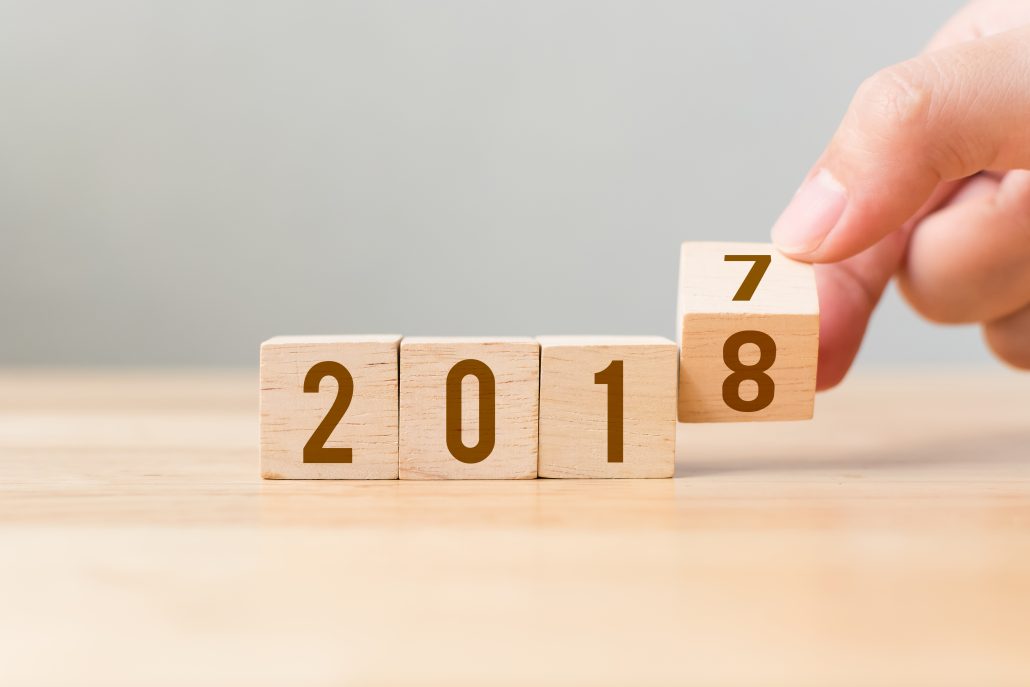
With the beginning of the new year, Palm Healthcare Company is looking forward to helping spread more exciting stories of experience, strength, and hope while also sharing important news stories and exciting new developments that relate to the world of addiction recovery and substance use disorder treatment. As we commit ourselves to another year of fighting alongside thousands of people working toward a better future, we would also like to take some time looking back on all the big moments in 2017 that we shared with our Palm Healthcare Company Blog.
-
President Trump Declares Public Health Emergency: What’s the Plan?
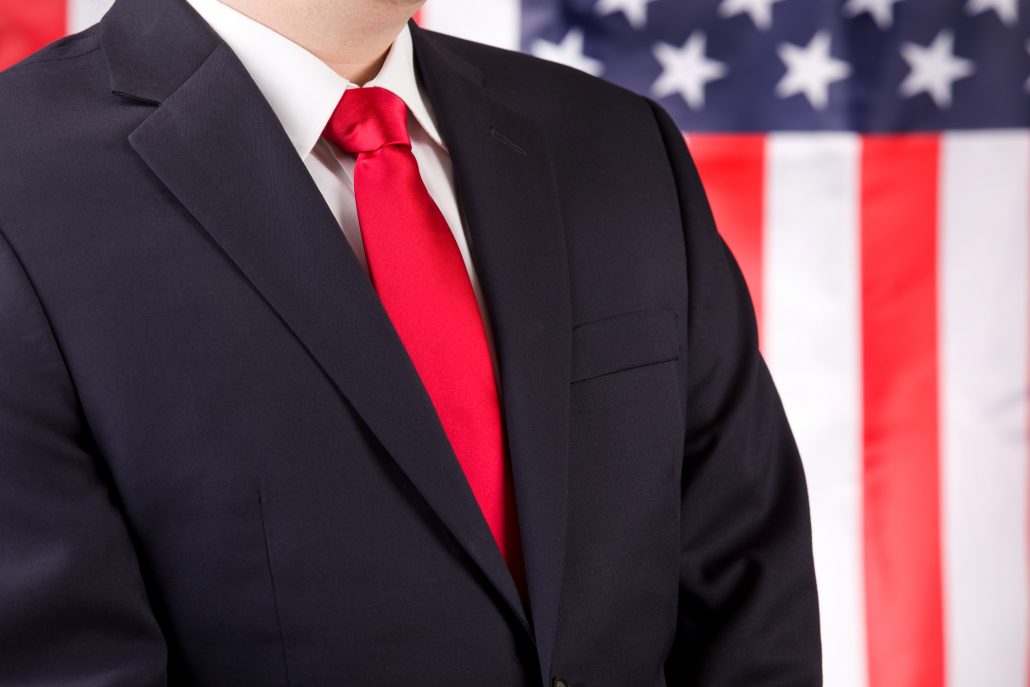
October of 2017, President Donald Trump made an announcement declaring the opioid crisis in America as a Public Health Emergency. This highly anticipated declaration was delivered in a way slightly different than many had expected, noting the technical differences between a Public Health Emergency and a National Emergency.
Many advocates were concerned that this announcement did not provide a concrete foundation for the necessary federal funding and did not initiate much-needed action, but others we assured that this means the Trump administration was taking this issue very seriously. In this article, we took a look at what this announcement did actually accomplish, and what it failed to deliver on.
-
Racketeering for Fentanyl: Opioid Maker Insys Founder Arrested for Bribes
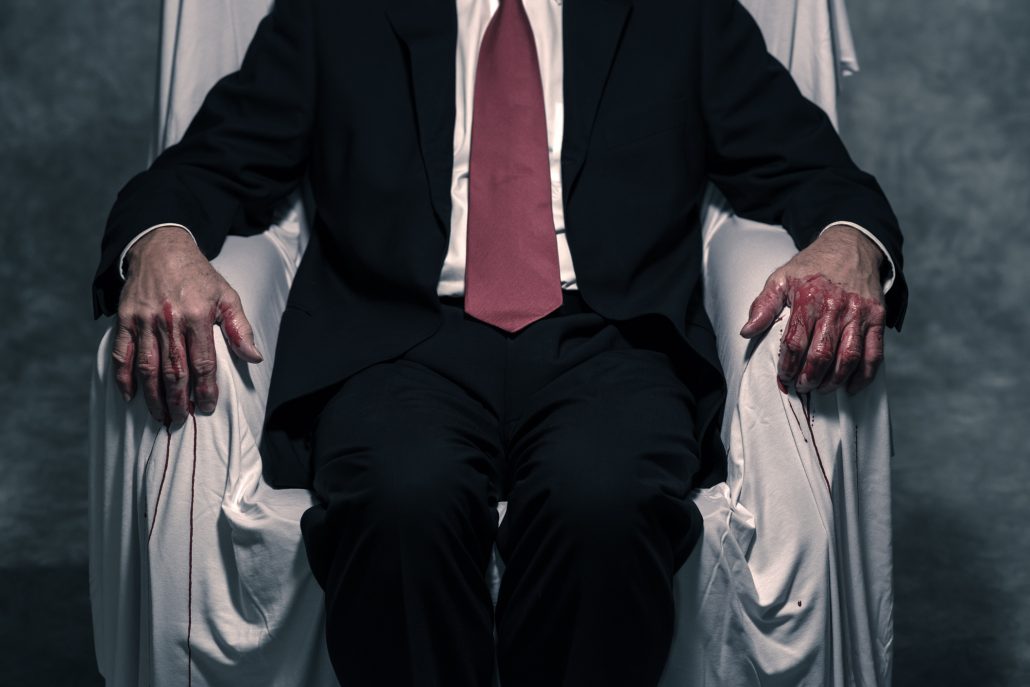
A huge development to another story came in late 2017 when John Kapoor, former CEO of Insys Therapeutics and founding father of one of the most prominent opioid manufacturers in the country, was arrested and charged with conspiring to push the signature drug of Insys Therapeutics, a Fentanyl spray called Subsys, for unacceptable uses through bribes and kickbacks.
The Palm Healthcare Company blog notes how back in 2016 the Justice Department reported to be charging 6 former executives and sales-managers of Insys Therapeutics for conspiring to defraud health insurers.
When looking at the details in this story, it has intensified the conversation about Big Pharma involvement in the epidemic
-
Can Kellyanne Conway Really Compete with the Opioid Crisis?

Not too long after President Trump’s declaration of a Public Health Emergency pertaining to the opioid crisis, Kellyanne Conway was announced as leading the charge on the White House’s efforts for addressing the opioid epidemic.
This Palm Healthcare Company blog saw a lot of comments!
While some find that having a high-profile figure at the head of the efforts gives validity to the White House’s commitment to solving the opioid issue in America, many others are speaking out in frustration. Those in opposition to this appointment say that while she may be useful as a counselor or pollster, she has no experience of expertise when it comes to drug abuse, addiction or substance use disorder treatment.
Thus far the one thing both Kellyanne and the President seem adamant about is a media campaign, but advocates are still afraid this is more “Just Say No” and not enough support for effective resources.
-
After Las Vegas Shooting: PTSD and Mental Health Must be Priority

In early October of 2016, the nation was shaken to its core when Las Vegas had one of the deadliest shootings in modern American history. This horrific tragedy flooded newsrooms and live viral footage with the country watching in shock as a gunman killed 58 people and injured 546 more at an outdoor music festival.
In the aftermath of this terrible and heartbreaking incident, our Palm Healthcare Company blog took a look at how such traumatic experiences impact people, and about the importance of those who struggle with Post-traumatic Stress Disorder (PTSD) getting proper diagnosis and care.
At a time when so many people are self-medicating with dangerous or even deadly narcotics, it is important to care for those most vulnerable, especially after such an earth-shattering experience.
-
Police Helping Addicts into Treatment is a Growing Trend Saving Lives

In August of 2017, we took a look back at several programs that had come to light all over the country based on Police Departments working with their communities to offer drug users the chance to get help with addiction treatment instead of being arrested and charged.
The pioneering program came from Gloucester Police Department in Massachusetts back in 2015. This program allowed users to ask police for help, and told addicts they could submit drugs to local law enforcement without fear of being arrested if they were willing to seek treatment. A 2016 study showed that this program was experiencing some impressive success.
Police departments in a number of other states were inspired by this and took up similar programs as a way to help their communities fight the addiction outbreak.
The Palm Healthcare Company blog took a close look at a handful of these programs to celebrate their compassion and success.
-
Sterilized for Cash: This Woman Pays Drug Addicts to Not Have Kids

Pregnant lady’s stomach and her hand holding dollar over black background
When we posted this Palm Healthcare Company blog we saw a great deal of debate in the comments on our Facebook. For over 20 years, Barbara Harris has driven across the country using cash to ask addicted women to give up their fertility. To date, the organization has paid over 7,000 people.
The controversy around such a powerful story had some people showing a great deal of support for someone giving addicted women an incentive to not get pregnant, while other people were appalled and angered that someone would entice desperate women who are not in the right mindset to make such dramatic and life-altering decisions with their bodies.
-
What Chester Bennington Taught Us about Addiction and Depression

(This content is being used for illustrative purposes only; any person depicted in the content is a model)
In July of 2017, the world lost a great artist and inspirational musician with the death of Chester Bennington, the lead singer of the band Linkin Park.
Initial reports were that Bennington had died from suicide by hanging, with later reports indicating that Chester had been drinking at the time of his death. The vocalist had been open about his struggles with depression and drug addiction over the years, and in this article, we took a look at just how much Chester Bennington could teach us about the devastation of depression and addiction.
-
Dear Media, Thank You for Bad Press
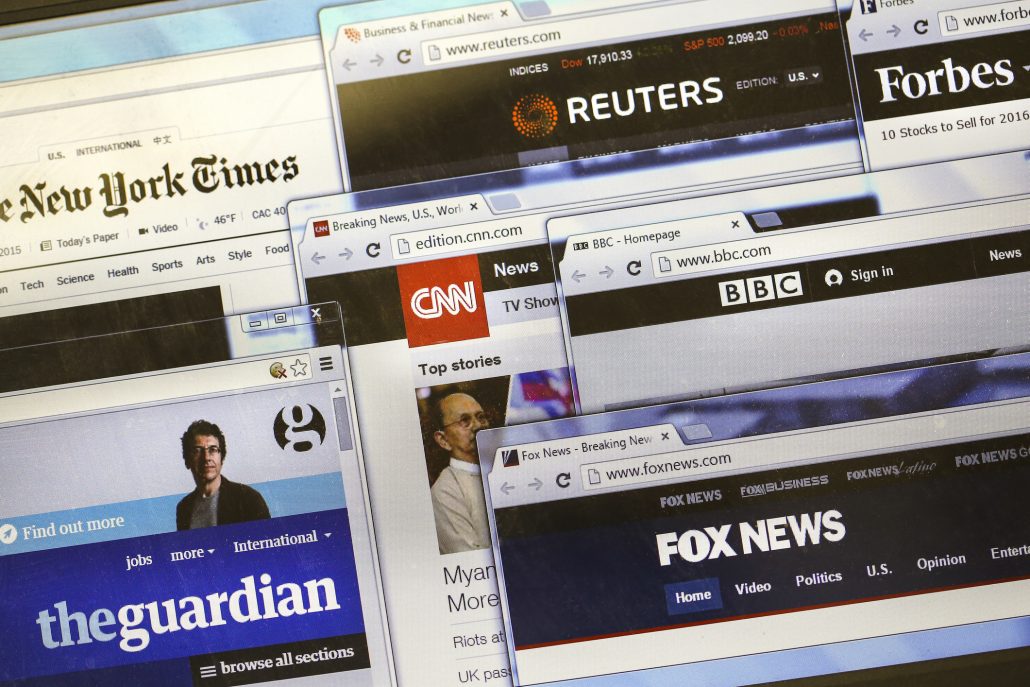
South Florida has been under a great deal of scrutiny recently, specifically concerning the issues facing the recovery community such as unethical and illegitimate sober home operators in the area. In June, there was a Megyn Kelly NBC News Investigation which focused in on Delray Beach, Florida and some of the big problems concerning unscrupulous activities from corrupt individuals exploiting drug addicts in need of help.
We took this time to look over some of the bigger stories concerning the illicit activities in South Florida with the recovery industry while showing support and gratitude for all those working together to try and put an end to operators who are taking advantage of people in need of help.
-
Palm Healthcare Measures Up to Addiction Treatment Outline for EAP
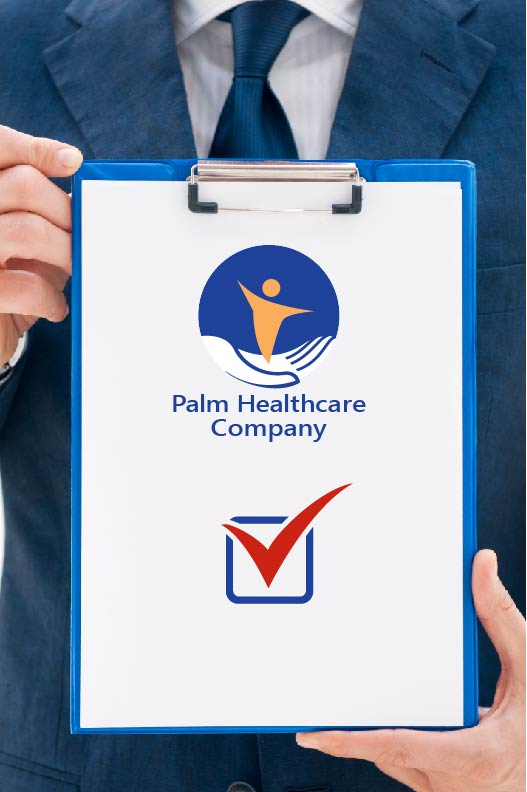
In September of 2017, we took a very close look at an article written by the Journal of Employee Assistance that was designed to help Employee Assistance Programs (EAPs) find the right kind of addiction treatment programs to recommend to their clients.
The outline given for EAPs to find effective and reliable addiction treatment options gives a list of things to look for. The Palm Healthcare Company blog was happy to show off just how all of our facilities measure up to these crucial standards.
Keep an Eye Out for More
Palm Healthcare Company continues to try and share every treatment development, news story or exciting innovation on our blog to not only help more people learn and raise awareness but to offer some perspective and maybe ask some new questions.
Whether it is sports, celebrities, news or politics we are committed to talking about important stories that pertain to drug policy in America, substance use disorder, mental health, and personal wellness. We will continue to touch on the top stories of 2018 to spread the word and hopefully inspire more people to get involved in these crucial conversations.
2017 was an intense, innovative and inspiring year. Here is to hope for 2018.
Holistic addiction treatment means incorporating every aspect of life for each individual with personalized opportunities for lasting recovery. So every bit of information can help anyone make a more comprehensive decision about what kind of recovery plan they want. If you or someone you love is struggling, please call toll-free now.
CALL NOW 1-888-922-5398
by Justin Mckibben | Dec 7, 2017 | Carfentanil, Drug Abuse, Fentanyl, Fentanyl, News, Opioids, Synthetic Drugs
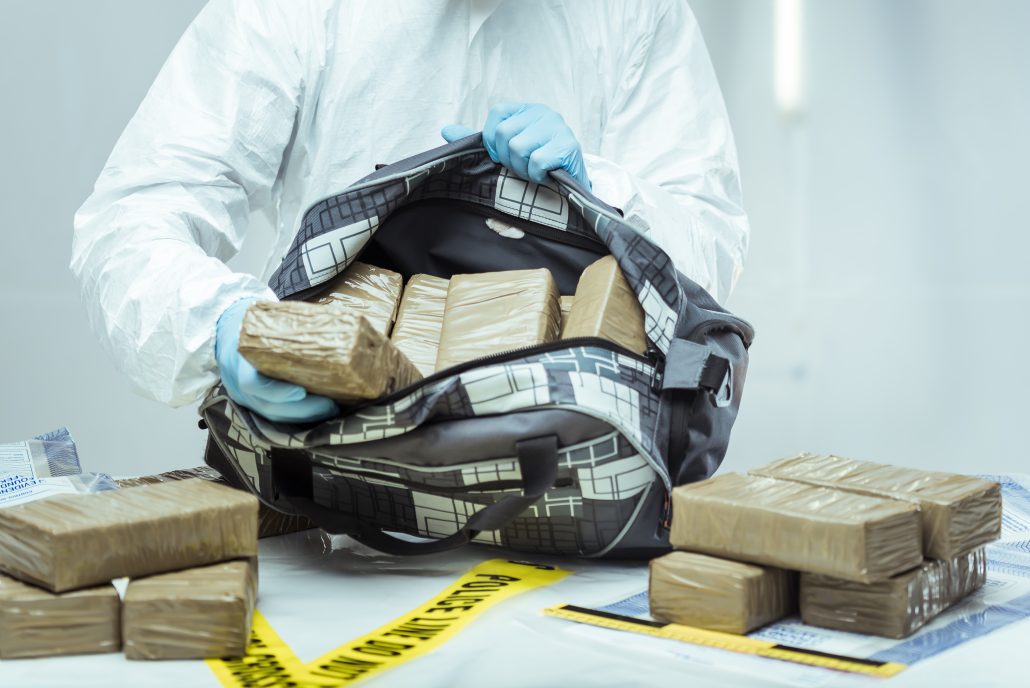
In 2014 the state of Ohio was #2 for most overdose deaths in all of America with approximately 2,744 deaths. For 2016 early estimates are putting that number at 4,149 Ohioans who lost their lives, a 36% climb from 2015, the year when the Buckeye State had by far the most overdose deaths in the nation.
On average, 11 people died every day from heroin, fentanyl, carfentanil and other drugs in Ohio through 2016.
As the nation grapples with these skyrocketing body counts from coast to coast, more government and law enforcement officials are trying to find new ways to take action against the opioid crisis. For those who do not know, fentanyl is a synthetic opioid; one of the most dangerous drugs on the illicit market.
But recently the Capital City of the Midwest has scored a huge win in that fight.
Enough to Kill Columbus
Back in October one drug bust led to investigators discovering 2 kilograms, or 4.5 pounds, of fentanyl in the trunk of a car. To put this in perspective, the Franklin County Prosecutor Ron O’Brien stated that:
- A fatal dose of fentanyl is considered to be only 2-3 milligrams.
- In Columbus, Ohio the population is approximately 860,000 people.
Crunching the numbers, the prosecutor points out this amount of the incredibly lethal synthetic drug could have killed every man, woman, and child in the city.
Three California men were arrested in relation to this bust.
Enough to Kill Ohio
Just when you think you’ve heard the worst of it, that’s not even the tip of the iceberg. The following month police in the capital city seized 20 pounds of pure fentanyl. In regards to this case, Ron O’Brien said,
“So it would probably be enough to kill all, the entire population in the state of Ohio.”
Again, using the same lethal fentanyl dosage for perspective, Ohio has 11.6 million residents. The amount of fentanyl discovered in the November bust could potentially kill more than 9 million people. O’Brien included,
“Two or three milligrams of fentanyl is not much more than five or six small grains of salt.”
So it stands to reason that 20 pounds of this drug could easily wipe out the vast majority of the inhabitants of the state.
More Record Busts this Year
The opioid epidemic is the greatest drug crisis in the history of the country. As the problem has intensified, the spread of fentanyl and carfentanil has continued to bring dead and devastation. Luckily, there are more major opioid busts this year, with some seizing enough fentanyl to kill entire populations of several states.
New York
In August officials of the Empire State managed to seize more than 140 pounds of fentanyl in August. The Drug Enforcement Administration said that amount could’ve killed nearly 32 million people. Put more bluntly, this amount of fentanyl could wipe out the populations of Texas and Oklahoma… combined!
San Diego
Back in June officials in this major California city found close to 100 pounds of fentanyl. That is enough to kill 22.4 million people; that is the combined populations of:
- New York
- New Hampshire
- Maine
St. Louis
The Gateway to the West was able to catch nearly 60 pounds of pure fentanyl back in April. That alone is enough to kill more than 13.6 million people.
Fighting the Spread of Fentanyl
Back in Ohio, Ron O’Brien and other officials know the opioid epidemic is getting worse all over the country. The Center for Disease Control and Prevention’s latest drug report states:
- More than 33,000 people died from opioid-related drug overdoses in 2015
- Close to 10,000 of them were from synthetic opioids such as fentanyl
In the state of Ohio, the opioid crisis has placed an increasing strain on resources. Financially it is costing Ohio residents between $6.6 and 8.8 billion per year, according to some experts. That is almost as much as the state spends on education for grades K-12.
Yet the fight goes on.
These massive seizures of this lethal synthetic chemical have undoubtedly saved many lives. However, putting a complete stop to the illicit drug trade is still very far off, if at all possible. Still, taking a few hundred pounds of such a potent and potentially deadly drugs off the streets makes an immeasurable difference.
For more important information on the dangers of prescription drugs, download our FREE E-BOOK “Big Secrets of Big Pharma: Why They Secretly Hope You Get Hooked”
DOWNLOAD FREE E-BOOK
Treating Opioid Abuse
Holistic drug addiction treatment is an effective and important resource for helping people struggling with substance use disorder, especially in the wake of the opioid crisis in America.
Outbreaks of more life-threatening drug problems including fentanyl and other hazardous synthetics only make the need for supportive and impactful treatment more relevant. If we want to overcome the opioid epidemic there must be an emphasis on how we treat people struggling and on how we support them through the recovery process.
Treating opioid abuse is about building a strong foundation with safe medical detox, personalized therapy, and innovative treatment opportunities. Palm Healthcare Company helps thousands of people all over the country overcome opioid abuse. Our facilities are committed to providing quality care for those dealing with drug abuse, whether it is illicit drugs or prescription drug dependence. If you or someone you love is struggling, please call toll-free now. We want to help.
CALL NOW 1-888-922-5398















